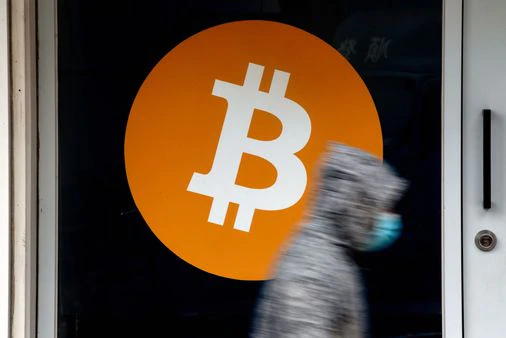SPAC mergers were much more popular last summer when Circle agreed to combine with one called Concord Acquisition Corp.
But lately, the stock prices of companies that merged with SPACs have crashed. For example, Boston synthetic biology company Ginkgo Bioworks merged with a SPAC last year and its price is down 62 percent over the past three months.
And in more recent SPAC deals, investors are exercising their right to opt out — Boston biotech Gelesis saw 98 percent of investors drop from its deal in January — meaning Circle probably wouldn’t have collected anywhere near $715 million from its original deal.
Stock market investors have also soured somewhat on crypto deals as they’ve seen the price of Bitcoin leap above $67,000, plummet to $35,000, and rally to $45,000 — just in the past three months. Coinbase, a New York-based company that helps investors trade cryptocurrencies, has seen its stock price cut almost in half over the past three months.
Billionaire investor Charlie Munger this week compared crypto to “some venereal disease” and said it’s so useful to criminals that he wished it was banned immediately.
But plenty of venture capitalists and other private investors are still excited about investing in crypto companies like Circle. Silicon Valley billionaires such as Jack Dorsey go so far as to predict Bitcoin will replace the dollar some day.
And despite the volatility of Bitcoin, Circle’s own business has been booming. The company issues its own form of digital currency which is backed by assets in escrow to prevent the price from plunging or skyrocketing. Known as a stablecoin, Circle’s “USDC” currency is used to speed digital financial transactions.
“Circle has made massive strides toward transforming the global economic system through the power of digital currencies and the open internet,” cofounder and chief executive Jeremy Allaire said in a statement.
The company attributed the revisions to its SPAC plans to “a variety of reasons outside of the parties’ control.” (Allaire and other Circle executives declined to be interviewed.)
Circle said that it has issued $52.5 billion of its stablecoin currency, more than double the amount that was outstanding last summer. The company’s revenue from managing the system, investing the assets backing the stablecoins, and providing other services rose more than fivefold to $85 million last year from 2020. Circle also reported an operating loss before taxes and some other costs of $79 million. It didn’t disclose the figure for 2020.
So while the company probably couldn’t raise $715 million from public investors, it still looks appealing to private investors who have faith in stablecoins. Circle said its revised SPAC deal will value the company at $9 billion, up from the $4.5 billion valuation of the SPAC deal from last summer.
That investor faith might be misplaced, according to Hilary Allen, a law professor at American University who has studied cryptocurrency trends.
“We’re definitely in a crypto bubble and the question is what happens when it pops,” Allen said.
Congress is considering several approaches to regulating stablecoins, which could range from allowing the market to continue much as it currently exists to requiring companies like Circle to operate more like banks, with stricter controls.
Aaron Pressman can be reached at aaron.pressman@globe.com. Follow him on Twitter @ampressman.
Credit: Source link




















